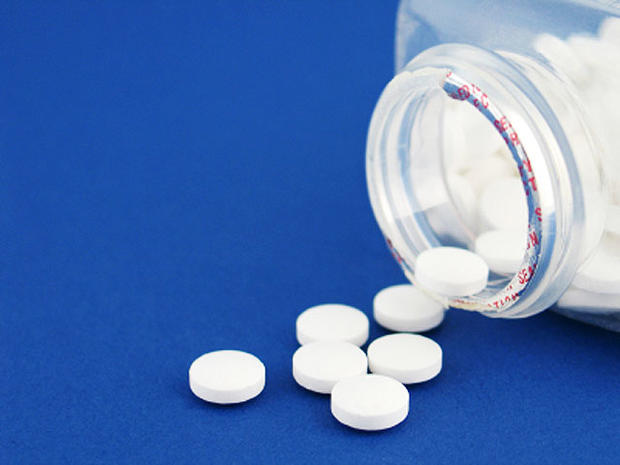Taking daily aspirin to prevent a heart attack? Don't stop, warn doctors
(CBS) Doctors have long said taking daily low-dose aspirin helps prevent a myocardial infarction, or heart attack. But a new study warns these patients that they shouldn't stop taking aspirin- or they could die.
Spanish researchers report that patients who stop taking daily low-dose aspirin are 60 percent more likely to have a heart attack within a year.
"Unless there is a high risk of serious bleeding or otherwise recommended by a doctor, aspirin should never be discontinued," study author Dr. Luis A. Garcia Rodriguez, director of the Spanish Center for Pharmacoepidemiologic Research, told WebMD.
For the study - published in the July 19 issue of British Medical Journal -researchers looked at data from a British medical records database on nearly 40,000 patients, 50 to 84 years old, who were prescribed 75 to 300 milligrams of daily aspirin. Patients were followed for three years to determine if those who stopped taking aspirin had a heart attack, or died from heart disease. The researchers found 876 patients had a heart attack, while another 346 died of heart disease. That translates to four additional heart attacks for every 1000 patients during the year they stop taking aspirin.
"We might compare aspirin to safety seat belts," Dr. Giuseppe Biondi Zoccai, professor of medicine University of Modena and Reggio Emilia in Italy, and author of an accompanying editorial in the journal, told WebMD. "If you drive your car without using the safety seat belts, your risk of having a fatal accident is increased, but most of the time if you just are going to the mall, you come back home safely."
But some doctors advise patients to stop aspirin because of internal bleeding concerns, or if they are going to get surgery. So what should these patients do?
"While aspirin use can increase the risk of bleeding, for most patients with known vascular disease the benefits of daily low dose aspirin exceed the potential risks," Dr. Gregg C. Fonarow, a professor of cardiology at the University of California, Los Angeles, told HealthDay.
The study authors recommend stopping for no more than five days, since studies show that won't increase heart disease risk. But Biondi Zoccai warns that the risk goes up about 8 to 10 days after the last dose.
WebMD has more on aspirin therapy for heart disease.
